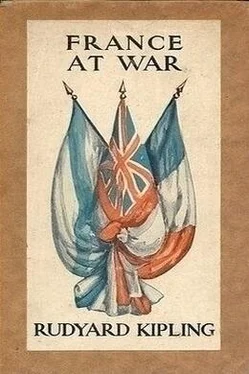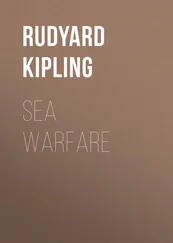Rudyard Kipling - France at War
Здесь есть возможность читать онлайн «Rudyard Kipling - France at War» весь текст электронной книги совершенно бесплатно (целиком полную версию без сокращений). В некоторых случаях можно слушать аудио, скачать через торрент в формате fb2 и присутствует краткое содержание. Год выпуска: 2014, Издательство: epubBooks Classics, Жанр: Биографии и Мемуары, prose_military, на английском языке. Описание произведения, (предисловие) а так же отзывы посетителей доступны на портале библиотеки ЛибКат.
- Название:France at War
- Автор:
- Издательство:epubBooks Classics
- Жанр:
- Год:2014
- ISBN:нет данных
- Рейтинг книги:4 / 5. Голосов: 1
-
Избранное:Добавить в избранное
- Отзывы:
-
Ваша оценка:
- 80
- 1
- 2
- 3
- 4
- 5
France at War: краткое содержание, описание и аннотация
Предлагаем к чтению аннотацию, описание, краткое содержание или предисловие (зависит от того, что написал сам автор книги «France at War»). Если вы не нашли необходимую информацию о книге — напишите в комментариях, мы постараемся отыскать её.
and
.
France at War — читать онлайн бесплатно полную книгу (весь текст) целиком
Ниже представлен текст книги, разбитый по страницам. Система сохранения места последней прочитанной страницы, позволяет с удобством читать онлайн бесплатно книгу «France at War», без необходимости каждый раз заново искать на чём Вы остановились. Поставьте закладку, и сможете в любой момент перейти на страницу, на которой закончили чтение.
Интервал:
Закладка:
FARM LIFE AMIDST WAR
There was a village that had been stamped flat, till it looked older than Pompeii. There were not three roofs left, nor one whole house. In most places you saw straight into the cellars. The hops were ripe in the grave–dotted fields round about. They had been brought in and piled in the nearest outline of a dwelling. Women sat on chairs on the pavement, picking the good–smelling bundles. When they had finished one, they reached back and pulled out another through the window–hole behind them, talking and laughing the while. A cart had to be maneuvered out of what had been a farmyard, to take the hops to market. A thick, broad, fair–haired wench, of the sort that Millet drew, flung all her weight on a spoke and brought the cart forward into the street. Then she shook herself, and, hands on hips, danced a little defiant jig in her sabots as she went back to get the horse. Another girl came across a bridge. She was precisely of the opposite type, slender, creamy–skinned, and delicate–featured. She carried a brand–new broom over her shoulder through that desolation, and bore herself with the pride and grace of Queen Iseult.
The farm–girl came out leading the horse, and as the two young things passed they nodded and smiled at each other, with the delicate tangle of the hop–vines at their feet.
The guns spoke earnestly in the north. That was the Argonne, where the Crown Prince was busily getting rid of a few thousands of his father's faithful subjects in order to secure himself the reversion of his father's throne. No man likes losing his job, and when at long last the inner history of this war comes to be written, we may find that the people we mistook for principals and prime agents were only average incompetents moving all Hell to avoid dismissal. (For it is absolutely true that when a man sells his soul to the devil he does it for the price of half nothing.)
WATCHING THE GUN–FIRE
It must have been a hot fight. A village, wrecked as is usual along this line, opened on it from a hillside that overlooked an Italian landscape of carefully drawn hills studded with small villages—a plain with a road and a river in the foreground, and an all–revealing afternoon light upon everything. The hills smoked and shook and bellowed. An observation–balloon climbed up to see; while an aeroplane which had nothing to do with the strife, but was merely training a beginner, ducked and swooped on the edge of the plain. Two rose–pink pillars of crumbled masonry, guarding some carefully trimmed evergreens on a lawn half buried in rubbish, represented an hotel where the Crown Prince had once stayed. All up the hillside to our right the foundations of houses lay out, like a bit of tripe, with the sunshine in their square hollows. Suddenly a band began to play up the hill among some trees; and an officer of local Guards in the new steel anti–shrapnel helmet, which is like the seventeenth century sallet, suggested that we should climb and get a better view. He was a kindly man, and in speaking English had discovered (as I do when speaking French) that it is simpler to stick to one gender. His choice was the feminine, and the Boche described as "she" throughout made me think better of myself, which is the essence of friendship. We climbed a flight of old stone steps, for generations the playground of little children, and found a ruined church, and a battalion in billets, recreating themselves with excellent music and a little horseplay on the outer edge of the crowd. The trouble in the hills was none of their business for that day.
Still higher up, on a narrow path among the trees, stood a priest and three or four officers. They watched the battle and claimed the great bursts of smoke for one side or the other, at the same time as they kept an eye on the flickering aeroplane. "Ours," they said, half under their breath. "Theirs." "No, not ours that one—theirs! . . . That fool is banking too steep . . . That's Boche shrapnel. They always burst it high. That's our big gun behind that outer hill . . . He'll drop his machine in the street if he doesn't take care . . . There goes a trench–sweeper. Those last two were theirs, but that "—it was a full roar —"was ours."
BEHIND THE GERMAN LINES
The valley held and increased the sounds till they seemed to hit our hillside like a sea.
A change of light showed a village, exquisitely pencilled atop of a hill, with reddish haze at its feet.
"What is that place?" I asked.
The priest replied in a voice as deep as an organ: "That is Saint―— It is in the Boche lines. Its condition is pitiable."
The thunders and the smokes rolled up and diminished and renewed themselves, but the small children romped up and down the old stone steps; the beginner's aeroplane unsteadily chased its own shadow over the fields; and the soldiers in billet asked the band for their favourite tunes.
Said the lieutenant of local Guards as the cars went on: "She—play—Tipperary."
And she did—to an accompaniment of heavy pieces in the hills, which followed us into a town all ringed with enormous searchlights, French and Boche together, scowling at each other beneath the stars.
It happened about that time that Lord Kitchener with General Joffre reviewed a French Army Corps.
We came on it in a vast dip of ground under grey clouds, as one comes suddenly on water; for it lay out in misty blue lakes of men mixed with darker patches, like osiers and undergrowth, of guns, horses, and wagons. A straight road cut the landscape in two along its murmuring front.
VETERANS OF THE WAR
It was as though Cadmus had sown the dragon's teeth, not in orderly furrows but broadcast, till, horrified by what arose, he had emptied out the whole bag and fled. But these were no new warriors. The record of their mere pitched battles would have satiated a Napoleon. Their regiments and batteries had learnt to achieve the impossible as a matter of routine, and in twelve months they had scarcely for a week lost direct contact with death. We went down the line and looked into the eyes of those men with the used bayonets and rifles; the packs that could almost stow themselves on the shoulders that would be strange without them; at the splashed guns on their repaired wheels, and the easy–working limbers. One could feel the strength and power of the mass as one feels the flush of heat from off a sunbaked wall. When the Generals' cars arrived there, there was no loud word or galloping about. The lakes of men gathered into straight–edged battalions; the batteries aligned a little; a squadron reined back or spurred up; but it was all as swiftly smooth as the certainty with which a man used to the pistol draws and levels it at the required moment. A few peasant women saw the Generals alight. The aeroplanes, which had been skimming low as swallows along the front of the line (theirs must have been a superb view) ascended leisurely, and "waited on" like hawks. Then followed the inspection, and one saw the two figures, tall and short, growing smaller side by side along the white road, till far off among the cavalry they entered their cars again, and moved along the horizon to another rise of grey–green plain.
"The army will move across where you are standing. Get to a flank," some one said.
AN ARMY IN MOTION
We were no more than well clear of that immobile host when it all surged forward, headed by massed bands playing a tune that sounded like the very pulse of France.
The two Generals, with their Staff, and the French Minister for War, were on foot near a patch of very green lucerne. They made about twenty figures in all. The cars were little grey blocks against the grey skyline. There was nothing else in all that great plain except the army; no sound but the changing notes of the aeroplanes and the blunted impression, rather than noise, of feet of men on soft ground. They came over a slight ridge, so that one saw the curve of it first furred, then grassed, with the tips of bayonets, which immediately grew to full height, and then, beneath them, poured the wonderful infantry. The speed, the thrust, the drive of that broad blue mass was like a tide–race up an arm of the sea; and how such speed could go with such weight, and how such weight could be in itself so absolutely under control, filled one with terror. All the while, the band, on a far headland, was telling them and telling them (as if they did not know!) of the passion and gaiety and high heart of their own land in the speech that only they could fully understand. (To hear the music of a country is like hearing a woman think aloud.)
Читать дальшеИнтервал:
Закладка:
Похожие книги на «France at War»
Представляем Вашему вниманию похожие книги на «France at War» списком для выбора. Мы отобрали схожую по названию и смыслу литературу в надежде предоставить читателям больше вариантов отыскать новые, интересные, ещё непрочитанные произведения.
Обсуждение, отзывы о книге «France at War» и просто собственные мнения читателей. Оставьте ваши комментарии, напишите, что Вы думаете о произведении, его смысле или главных героях. Укажите что конкретно понравилось, а что нет, и почему Вы так считаете.












